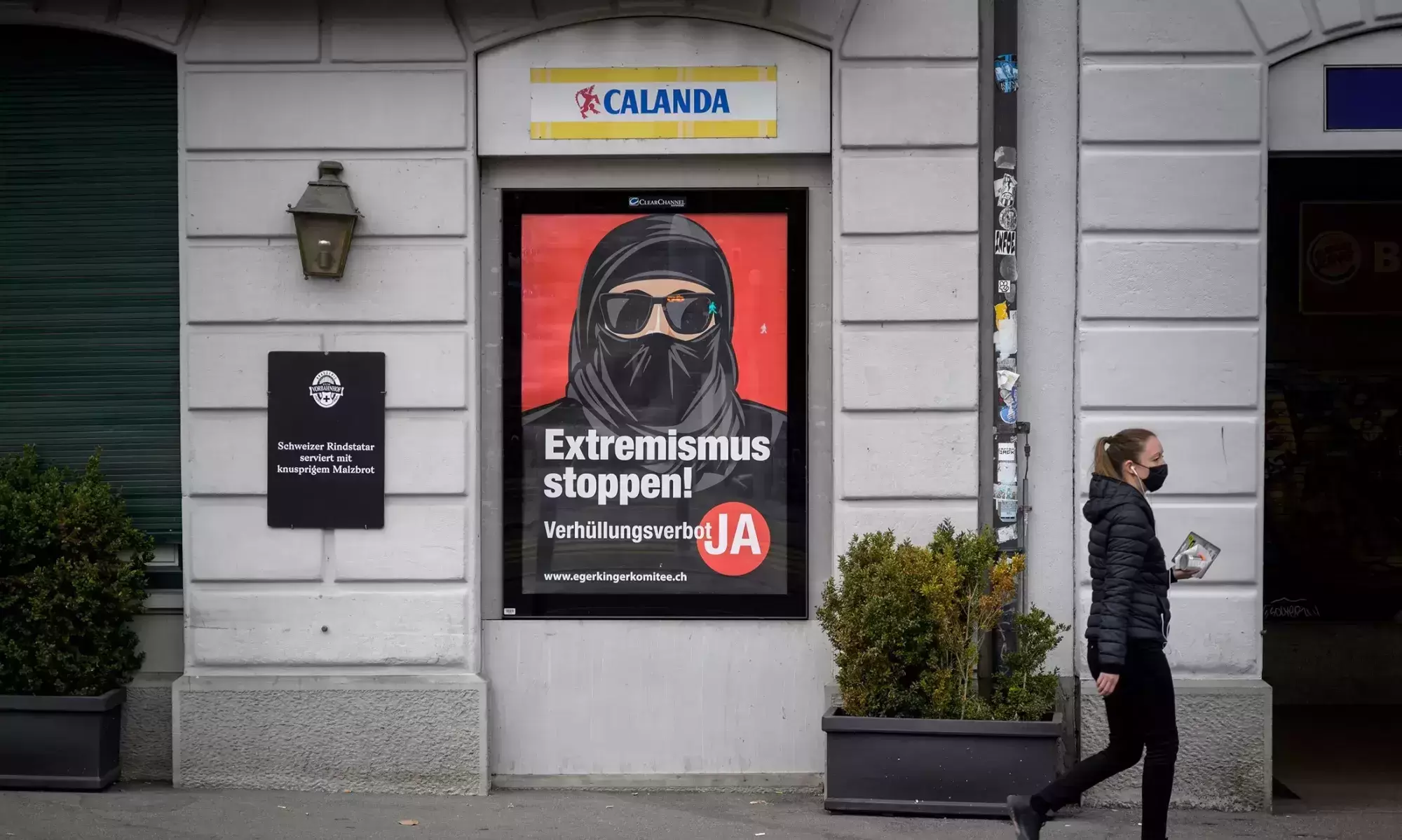
Indian politicians react to Switzerland's 'burqa ban'
text_fieldsA poster in Switzerland reads "Stop extremism!" Photo: Fabrice Coffrini/AFP
New Delhi: Indian politicians on Thursday responded to the "burqa ban" recently implemented in Switzerland, which came into effect on January 1. They highlighted that the decision was Switzerland's internal matter and should not be viewed through a religious lens.
The new law, which bans facial coverings in public spaces, mandates fines of up to 1,000 Swiss francs ($1,144) for those violating the prohibition. Exceptions are made for private or sacred spaces, and on planes or diplomatic premises. The move has generated global debate on its implications.
BJP National Spokesperson Mukhtar Abbas Naqvi remarked that Switzerland likely had valid reasons for implementing the ban, adding that each country has its own laws and security arrangements. "It is not necessary to view this matter through a religious perspective," Naqvi said.
NCP-SP leader Majeed Memon stated that although the law might not be well-received by Muslim-majority nations, it would not have an impact on India. He noted that Switzerland has a smaller Muslim population compared to India, and the decision was based on local conditions. "Switzerland is a small nation, and its Muslim population is very small. The government must have taken these steps considering their national context," Memon explained.
Memon also emphasized the vast difference in the population size between India and Switzerland, saying, "India's Muslim population is likely larger than Switzerland's total population, with over 200 million Muslims in India. This issue will not affect India. It is Switzerland's matter, and it is not necessary for others to intervene."
He further stated that while Muslim-majority countries may criticize Switzerland’s decision, it would not impact India, where people of all faiths live together harmoniously.
The "burqa ban," which does not specifically target Islam, was proposed by the right-wing Swiss People's Party (SVP) under the banner "Stop Extremism." The law also aims to prohibit violent protesters from wearing masks. In a 2021 referendum, Swiss citizens voted 51.2% in favor of the ban, with 48.8% opposing it. The Swiss government had opposed the measure, arguing that the state should not dictate how individuals dress.
Switzerland operates under a direct democracy system, where citizens regularly vote on national and regional issues, granting them a direct say in governance. The "burqa ban" referendum was a part of this system, allowing Swiss citizens to express their preferences on the matter.
The law includes exceptions for facial coverings in places of worship, during public health emergencies, or for safety reasons in the workplace.
With IANS inputs























